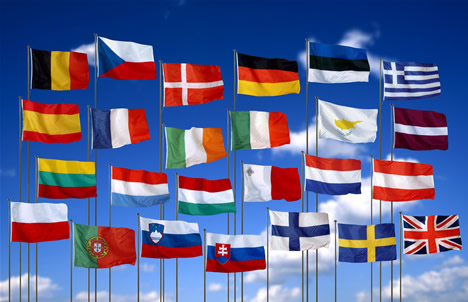Linguistic fracture in Belgium (2/23/2008)
Spanish vs English (11/23/2007)
Languages evolve just as species do (10/16/2007)
Súbete, "Get in" (9/23/2007)
Understanding bilingualism is important in understanding how the brain learns and deals with language (9/13/2007)
School Translators Can Help Parents Lost in the System (8/13/2007)
Police recruit linguist officers (5/29/2007)
Poet and Publisher Bridges Cultures (2/11/2007)
A drive to encourage more students to study languages is being launched after a drop in undergraduate numbers (9/26/2006)
The mayor of Merchtem in Belgium has defended a ban on speaking French in the town's schools (9/1/2006)
Entries this summer in German were down at GCSE by 14.2%, while French declined by 13.2% and Spanish by 0.5% (8/24/2006)
Modern languages and politics were no longer viable due to falling applications (5/22/2006)
Found in Translation: Endangered Languages (4/21/2006)
The loss of languages continues, and it's a worldwide phenomenon (3/07/2006)
Language exams in sharp decline (8/25/2005)
I wanted a job which would make the most of my language skills and cultural experiences (7/19/2005)
English 'world language' forecast (12/09/2004)
English is no longer the universal language of business it once was (4/16/2004)
Those who think Texas is a good place to live adopt the flat 'I' -- it's like the badge of Texas (11/28/2003)
Celtic became a distinct language and entered the British Isles much earlier than supposed (7/01/2003)
Brits abroad are the least well-regarded by foreigners (7/19/2002)
Nurses hit language barrier (2/27/2002)
Babylon Languages (1/08/2002)
In England only around one primary school in five teaches a foreign language. (8/03/2001)
Is the Atlantic the only thing that divides the UK and US? (7/19/2001)







